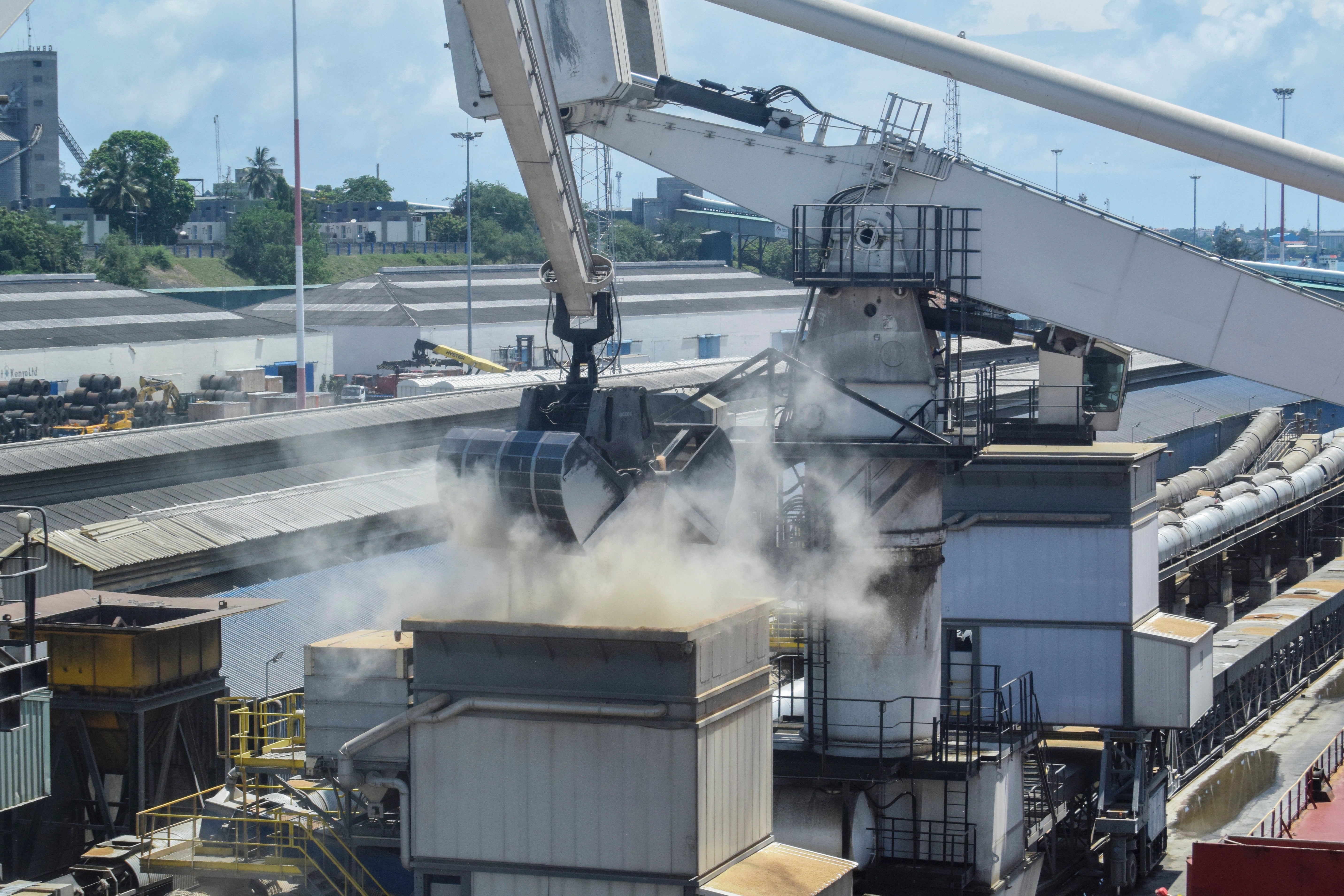Russia, Ukraine extend grain deal to aid world's poor
Turkish President Recep Tayyip Erdogan and Ukrainian officials say an unprecedented wartime deal that allows grain to flow from Ukraine to countries in Africa, the Middle East and Asia where hunger is a growing threat and high food prices are pushing more people into poverty has been extended

Your support helps us to tell the story
From reproductive rights to climate change to Big Tech, The Independent is on the ground when the story is developing. Whether it's investigating the financials of Elon Musk's pro-Trump PAC or producing our latest documentary, 'The A Word', which shines a light on the American women fighting for reproductive rights, we know how important it is to parse out the facts from the messaging.
At such a critical moment in US history, we need reporters on the ground. Your donation allows us to keep sending journalists to speak to both sides of the story.
The Independent is trusted by Americans across the entire political spectrum. And unlike many other quality news outlets, we choose not to lock Americans out of our reporting and analysis with paywalls. We believe quality journalism should be available to everyone, paid for by those who can afford it.
Your support makes all the difference.An unprecedented wartime deal that allows grain to flow from Ukraine to countries in Africa, the Middle East and Asia where hunger is a growing threat and high food prices are pushing more people into poverty has been extended, officials said Saturday.
The extension was announced by the United Nations and by Turkish President Recep Tayyip Erdogan, but neither confirmed the length of the extension.
Ukrainian Deputy Prime Minister Oleksandr Kubrakov tweeted that the deal had been extended for 120 days — the length that Ukraine, Turkey and the United Nations had wanted. There was no immediate comment from Russia, which had wanted to renew for 60 days.
This is the second renewal of separate agreements that Ukraine and Russia signed with the United Nations and Turkey to allow food to leave the Black Sea region after Russia invaded its neighbor more than a year ago. The warring nations are both major global suppliers of wheat, barley, sunflower oil and other affordable food products that developing nations depend on.
Russia has complained that shipments of its fertilizers — also critical to the global food chain — are not getting to global markets, which has long been an issue under the deal that first took effect in August and was renewed for another four months in November.
The war in Ukraine sent food prices surging to record highs last year and helped contribute to a global food crisis also tied to lingering effects of the COVID-19 pandemic and climate factors like drought. That disruption in shipments of grain needed for staples of diets in places like Egypt, Lebanon and Nigeria exacerbated economic challenges and helped push millions more people into poverty or food insecurity. People in developing countries spend more of their money on basics like food.
Food prices have fallen for 11 straight months, but food was already expensive before the war because of droughts from the Americas to the Middle East — most devastating in the Horn of Africa, with thousands dying in Somalia. Poorer nations that depend on imported food priced in dollars are spending more as their currencies weaken.
The crisis has left an estimated 345 million people facing food insecurity, according to the U.N.'s World Food Program.
The Black Sea Grain Initiative has helped by allowing 24 million metric tons of grain to leave Ukrainian ports, with 55% of the shipments heading going to developing nations, the U.N. said.
The agreements also have faced setbacks since it was brokered by the U.N. and Turkey: Russia pulled out briefly in November before rejoining and extending the deal. In the past few months, inspections meant to ensure ships only carry grain and not weapons have slowed down.
That has helped lead to backlogs in vessels waiting in the waters of Turkey and a recent drop in the amount of grain getting out of Ukraine.
Ukrainian and some U.S. officials have blamed Russia for the slowdowns, which the country denies.
While fertilizers have been stuck, Russia has been exporting huge amounts of wheat after a record crop. Figures from financial data provider Refinitiv show that Russian wheat exports more than doubled to 3.8 million tons in January from the same month a year ago, before the invasion.
Russian wheat shipments were at or near record highs in November, December and January, increasing 24% over the same three months a year earlier, according to Refinitiv. It estimated Russia would export 44 million tons of wheat in 2022-2023.
___
Andrew Wilks in Istanbul, Elise Morton in London and Julie Walker in New York contributed to this report.
___
See AP’s complete coverage of the war in Ukraine at https://apnews.com/hub/russia-ukraine and the food crisis at https://apnews.com/hub/food-crisis.